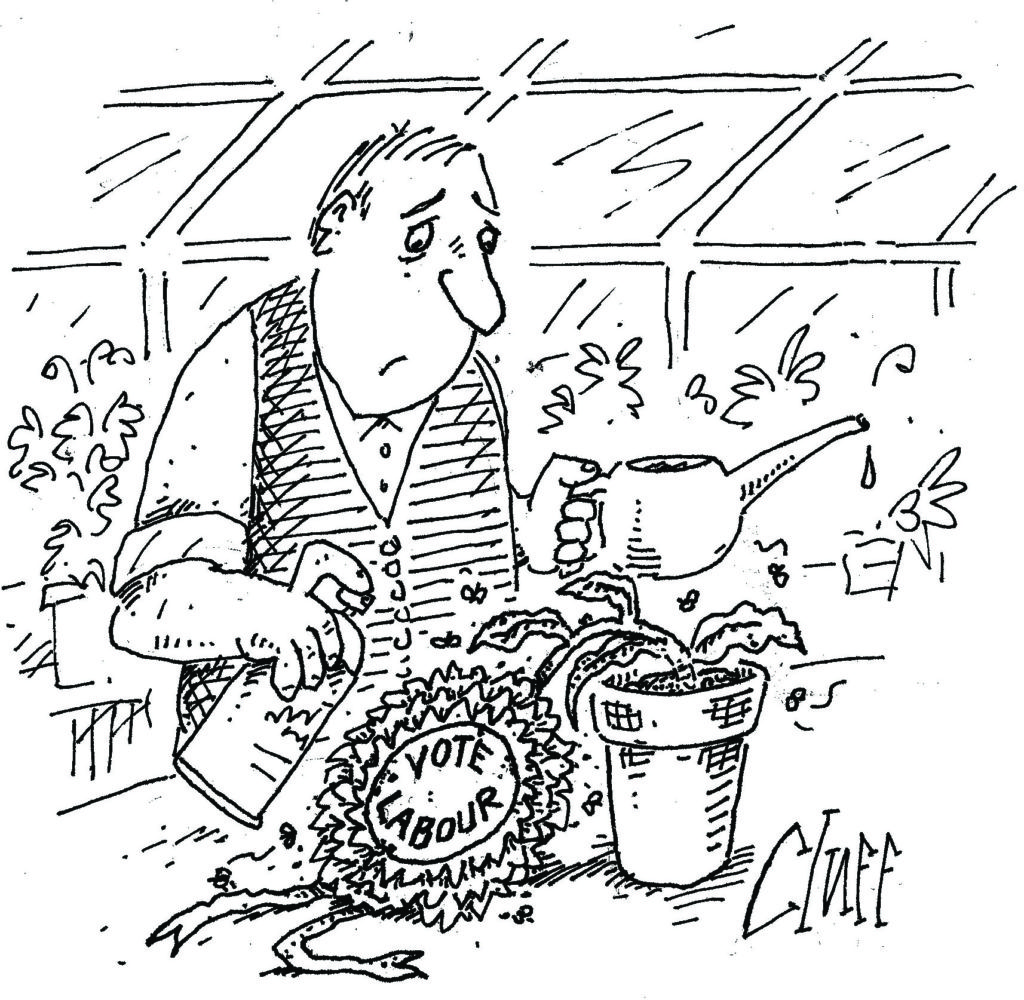The referendum result laid bare the hidden crisis facing Labour in the north east. Words by John Tomaney, cartoon by Cluff
Peter Lee was born in Duff Heap Row in Fivehouses, Trimdon Grange in 1864, the son of a miner. Aged 10, Peter went down Littletown Colliery, near Durham. His first pit job was as a pony driver. He progressed to become a putter, shifting tubs and, by 16, he was working alongside his father and brother as a hewer, getting coal from the face. It was a hard job and Peter Lee was a hard man. In his youth he was a drinker and fighter. He was saved by a love of books, a belated commitment to self-improvement and, above all, marriage to his childhood sweetheart, Alice Thompson. Under her influence, Peter gave up drink, settled in Wheatley Hill and became a Methodist preacher.
But he remained a fighter, organising his fellow workers in the Durham Miners Association to improve the dreadful conditions below and above ground. He became general secretary in 1919 and remained so until his retirement in 1936. He was elected also to Durham County Council and, when the Labour Party won control of it in 1919, Peter Lee became its leader. He set about improving housing, roads, sanitation and water and reducing infant mortality and improving life expectancy.
Peter Lee personified Labourism in the north east. The town of Peterlee honours his place in the pantheon of Labour heroes. Founded in the mines and communities around them (or shipyards or factories), slowly winning control of local councils, the Labour Party used its power to improve the conditions of working class people. It was the people’s party with deep and extensive roots in villages and towns. The record of local government contributed to Labour’s landslide victory in the general election of 1945 and to the creation of the NHS and the welfare state.
 Of course there was much to criticise in old-style Labourism even in its heyday. But Labour held power for generations in the north east because it delivered massive improvements in living standards for ordinary people. I recall my late grandma talking with genuine wonder about the experience of moving out of a pit cottage into a council house with an inside toilet in the 1940s.
Of course there was much to criticise in old-style Labourism even in its heyday. But Labour held power for generations in the north east because it delivered massive improvements in living standards for ordinary people. I recall my late grandma talking with genuine wonder about the experience of moving out of a pit cottage into a council house with an inside toilet in the 1940s.
But the Labourism that transformed the north east has been in a long crisis, kept alive by historical sentiment. The industries that supported their communities have gone and the deep networks that connected union, party and local government have atrophied and become merely vehicles for political careers. The new industries that have emerged to replace the old too often have provided low paid and insecure jobs. Local Labour leaders have heralded such developments as “successful regeneration”.
But the Brexit referendum, among other things, revealed that the story of successful regional regeneration is not believed by many voters. A gap has opened up between the party and its supporters. UKIP is best placed in the north east to feed off working class resentments even if it does not have a credible policy for economic development. UKIP took a 28% share of the vote in Hartlepool in the 2015 General Election compared to Labour’s 36%. In the Brexit referendum Hartlepool voted by 70% to leave. Of course, UKIP could implode, but these are danger signals for Labour, which takes comfort in large but fragile majorities.
The north east is still a Labour heartland, but this ascedancy is an illusion. The experience of Labour in Scotland shows how quickly and dramatically that domination can collapse. This is not inevitable.
Labour is popular in London, as evidenced by the election of Sadiq Khan as mayor this year. London also voted firmly to remain in the EU. UKIP is weak in London, taking only two of 25 seats in the Greater London Assembly despite the advantages of proportional representation. But appealing simultaneously to the concerns of London voters and the very different ones of voters in the deindustrialised north is Labour’s massive challenge and a component of the current civil war in the party.
The referendum result signalled the sudden arrival of a hidden crisis for Labour in the north east. Durham County Council has been a Labour fiefdom since Peter Lee assumed control in 1919. I was brought up in the culture of Labourism and I respect it. But it urgently needs renewal and reconnection with its heartland. Otherwise, we may be witnessing the end of an era.
[…]
Read more in The Northern Correspondent #9
